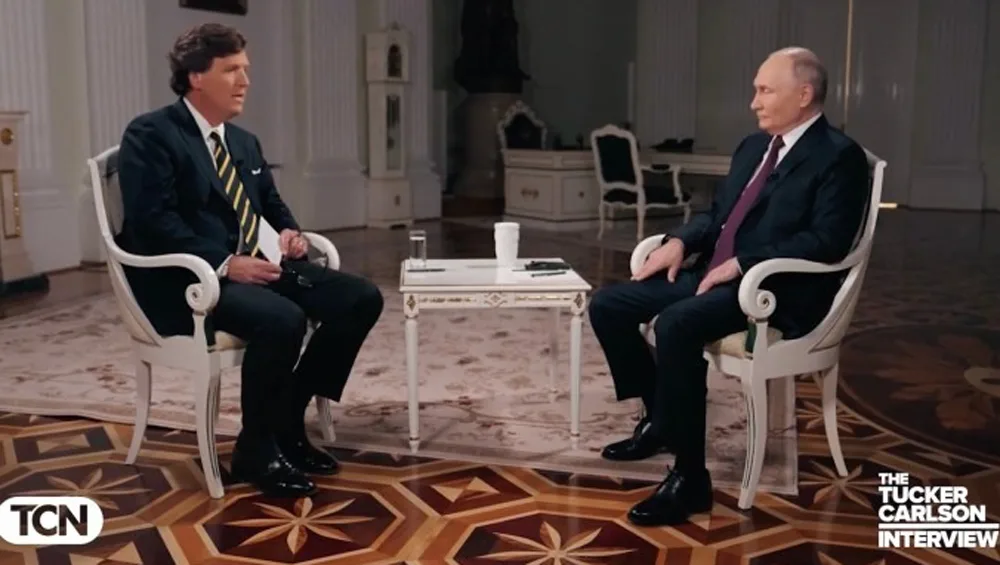
Scott R. Flick: “On Tuesday, the Federal Trade Commission announced a new rule banning employee noncompete agreements, treating them as harmful and an ‘unfair method of competition.’ This includes noncompetes in the broadcast industry, where they serve a vital purpose that was given short shrift by the FTC.
Local TV News’ Recruitment Problem Has A Solution

Across the country, open positions at TV newsrooms stay vacant or draw a drizzle of poorly equipped, unimaginative applicants. Changes at journalism schools and compensation, along with reframing how we think of applicants, could be among things to change that.
Vantage Points: Broadcast TV Sales Is Broken

David Buonfiglio: “I love TV. Always have. I’m still convinced it’s the single most effective branding medium ever created. I worked in (or for) local broadcast TV for 35 years. Briefly in news, but almost entirely in sales. That ended last year. And now that I have some distance and time between me and the medium I’ve loved for so long, I realize a couple a stark and unnerving truths about the business of local TV.”
Adam Sympson: Where We Are Headed And Why
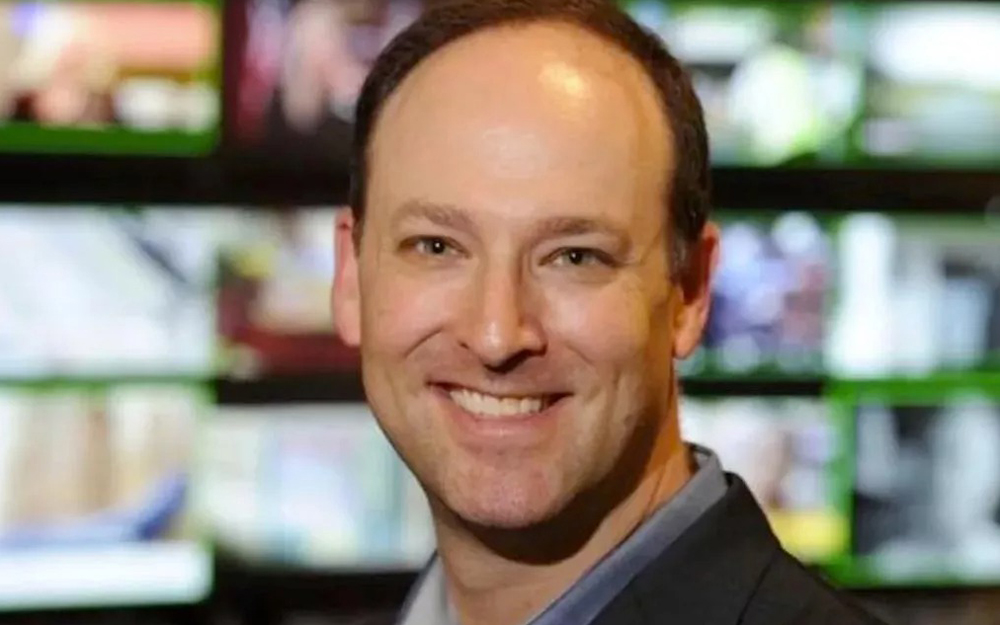
We are in the midst of a shift in the media industry in which many companies are pursuing business models that have yet to be proven and may never pan out. As consumers shift to an on-demand approach to television viewing driven mostly by digital delivery of video, many of the biggest media companies, far bigger than Scripps and our peer-group broadcasters, have taken steps to break their content out of the exclusivity of existing bundles that have served the industry so well for the last 50 years.
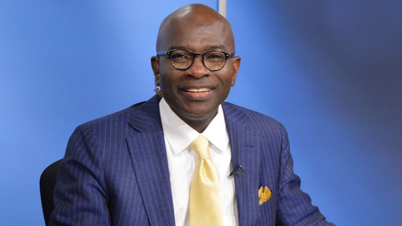
Armstrong Williams: Depression-era regulations won’t protect local journalism in the digital age.
How To (Actually) Change A TV Newsroom Culture

The industry’s focus on newsroom culture is critical, but nothing can fundamentally change unless leaders take these active and essential steps.

Stuart N. Brotman: “Recently, Los Angeles became the first major U.S. city to ban digital discrimination by expanding L.A.’s authority to oversee discrimination writ large. This localized approach may be a more effective route to confront this problem. It promises to lead to faster resolutions of neighborhood problems there, while also making sure that government continues to monitor the situation for potential violations.”

Adam Buckman: “Robert MacNeil, who died last week at age 93, may have been the last of his generation of broadcast journalists who set standards for quality and reliability that one could argue have largely disappeared. In an era before 24-hour, all-news, all-blathering cable news, and instant news of 280 characters or less on social media, the MacNeil/Lehrer newscasts stood at the pinnacle of TV news for their ethics, accuracy and credibility.” (Stephen Chernin/AP)
The Real Story Behind NPR’s Current Problems

Alicia Montgomery: Yes, the broadcaster is a mess. But “wokeness” isn’t the issue.
Sometimes, Local News Just Needs To Know Where To Stop

Time- and staff-starved newsrooms often cling tightly to practices they’ve always had, impeding their ability to take on newer, more relevant projects. Here are some practices to question and some enterprises that might better replace them.
Local TV’s Hiring Crisis Has A Solution

Local TV can still attract a truly talented younger generation of workers. But it will need to excite them with the prospect of inventing a whole new future of local news and information.
For TV News, Sacred Cows Are A Fatal Impediment To Change

If local TV journalism is to have a future, its leaders need to assess the true value of everything it holds sacred and empower the change agents who may have been pushed to the margins.
Stepping On The Gas For NextGen TV Broadcast Deployment

ONE Media’s Jerald Fritz: NextGen broadcasting provides new essential tools for broadcasters to serve their viewers as well as generate new revenue streams. We need to fast track the effort to bring that to the market.
NAB Show Offers An Expansive Gen AI Primer

One look at the schedule for the 2024 NAB Show and you might be convinced that artificial intelligence (AI) offers the solution for all that troubles today’s media businesses. Planned […]
FCC’s Heavy Hand With Nexstar And WPIX Is Misguided, Out-Of-Date

FCC Chair Jessica Rosenworcel is in a position to do much good for TV journalism, but she chooses to do harm. On March 21, the agency fined Nexstar $1.2 million […]
For Bolstering Local News, Weather Remains The Most Powerful Tool

How a station handles weather — and the caliber and connectedness of weathercasters in a local market — are critical to a successful news reinvention.

Local reporters, anchors and news helicopters played an invaluable role in telling the story of Tuesday morning’s shocking disaster in Baltimore, proving once more their value as a signal amid the noise.
Inside Media’s 12 Splintering Realities

You can’t understand November’s election — or America itself — without reckoning with how our media attention has shattered into a bunch of misshapen pieces. Think of it as the shards of glass phenomenon. Not long ago, we all saw news and information through a few common windows — TV, newspapers, cable. Now we find it in scattered chunks that match our age, habits, politics and passions.

KSTP’s Kirk Varner: To jettison the anchor as one means of averting an “iceberg” facing local TV news would be the absolute worst move, as anchors remain one of our most important roles.
It’s Time For A Reset On NextGen TV

AWARN’s John Lawson: The ATSC 3.0 transition is stalled. A new public-private partnership could jump start it.

David Oxenford: To conclude that it is deregulation, not marketplace forces, that is decreasing localism is to ignore the media marketplace generally.
Is It Time To Sideline The Local News Anchor?

TV anchors in their conventional form have outlived their sell-by date. It’s time to think about jettisoning many and putting those worth keeping out into the field where they can prove their connection—and value — to local viewers.
For FAST Channels, Server-Side Ad Insertion Is A Potent Revenue Tool

Broadcasters need to harness SSAI cost-effectively to get the most monetization opportunities from the FAST channels they’ve embraced. The ad insertion tech is getting better at helping them.
To Improve TV Reporting, Start With Station Priorities
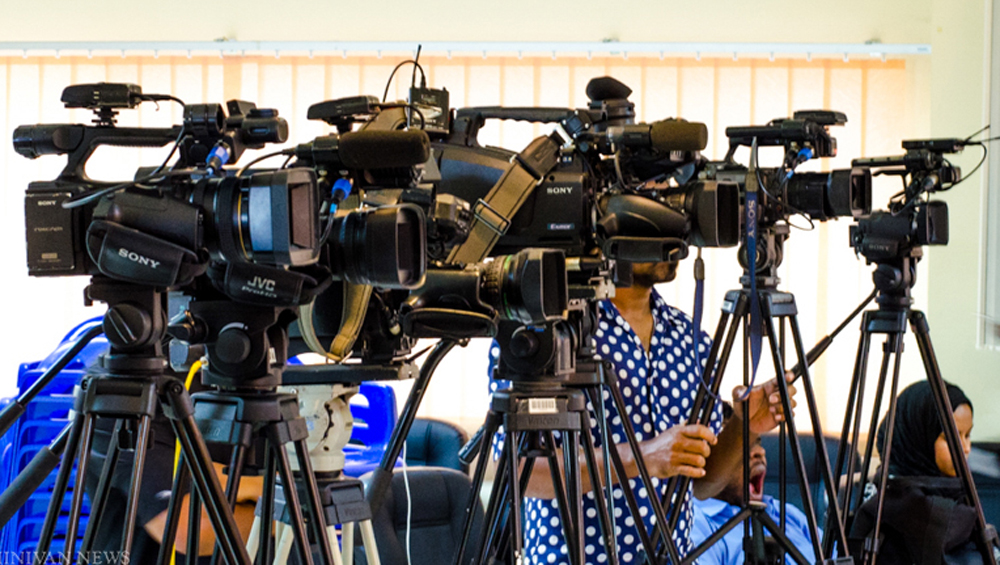
TV stations throw many impediments in the way of reporters trying to produce quality work. Clearing the way for their success starts with asking hard questions about where station resources are allocated and considering options like shared field resources.
Using AI In Media Planning And Buying

The benefits of AI and generative AI are becoming glaringly evident in the world of media buying and planning, where smarter trendspotting and better targeting and optimization rise quickly to the surface.
Faced With Unprofitability In ’25, Station Groups Must Pivot Now

Some local station groups must lean into creativity, experimentation and the prospect of divorcing their networks if they’re to survive an ominous 2025.
Local TV News Faces An Iceberg In ’25. Here’s How To Steer Clear Of It

Local audiences no longer see the value of TV news, and newsrooms are barreling towards the end of their runway to change that. But there are changes they can make immediately to repair trust and relevancy and secure their future.
A Cure For Media Malaise

The media industry, roiled by layoffs, coverage of a deeply contentious election and trust issues, is seeing morale plummet. Good managers can redirect that through refocused communication.
Why TVNewsCheck Matters

TVNewsCheck’s daily newsletters and original stories are essential reading for our industry. It’s absence from our inboxes is already keenly felt, so let’s help bring it back.
New Sports Joint Venture Is Too Small

Ted Hearn: The joint venture formed this week by Disney, Fox and Warner Bros. Discovery promises a massive slate of sports programming ripped from the traditional cable bundle yet deeply discounted from the roughly $200 or so that many pay each month to cable TV giants like Comcast and Charter. the Disney-Fox-WBD venture has a clear defect: It is too small. The market capitalization of the three JV partners is $238 billion combined. Netflix alone is worth $432 billion. Toss in Amazon/Prime at $1.8 trillion, Google/YouTube $1.85 trillion, and Apple/Apple TV at $2.9 trillion and it seems obvious that the streaming world eventually belongs to Big Tech absent a massive rival.
Tucker Carlson’s Putin Interview Wasn’t Journalism. It Was Sycophancy

Margaret Sullivan: The Russian president was waiting for the right stooge. With Carlson, he got just that.
Byron Allen Is A True Believer

The syndicator, station owner, cable network empresario, force of nature has gotten some attention from Shari Redstone with his $30 billion offer for her Paramount Global. He’s got a lot going for him because Allen believes in the future of our business. Virtually every investment he has made, every deal he has reached for, has been about his belief in linear television.
The News Business Really Is Cratering

The state of the industry is more dire than ever. Journalists across the country burst into flames of panic last week, as bad news for the news business crested and erupted everywhere all at once.
Cable Giants Insist That Forcing Them To Make Cancellations Easier Violates Their First Amendment Rights

Neither the FCC nor FTC has a particularly good track record of standing up to broadband and cable giants when it comes to their longstanding track record of anticompetitive behavior, price gouging or nickel-and-diming their often captive customers with bogus, hidden fees. Though occasionally one of the two agencies does step in to try make a bare minimum effort to rein in the industry’s worst impulses, such as the FTC’s attempt, unveiled last March, to force companies to stop making canceling service a pain in the ass. But the cable and broadband industry, which has a long and proud tradition of whining about every last consumer protection requirement (no matter how basic), is kicking back at that requirement.
It’s Time For A Deeper Embrace Of Community Journalism
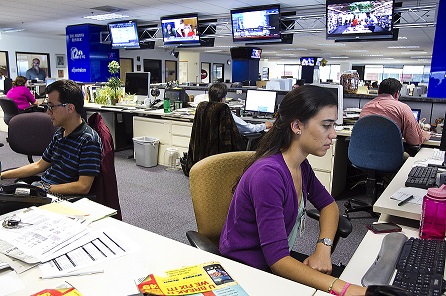
Dak Dillon: ”
Local broadcast news faces an existential crisis. As viewing habits rapidly evolve, these outlets confront crumbling business models, fleeing audiences and withering trust in journalism overall. The meteoric rise of ad-supported streaming and the slow death of cable present new pressures. Shareholders demand growing returns while journalistic integrity is strained. In this tumultuous landscape, business as usual is no longer an option. Providing steady “coverage you can count on” will not cut it. With local newspapers obliterated, broadcast is one of the last bastions of journalism left in each market. Reinvention is imperative, or these critical community voices will disappear.”

Edgio’s Eric Black: In an economically squeezed 2024, media companies that shift to a managed services model can find greater flexibility, efficiency and profitability.
Why Your Best Young TV Journalist Just Left

Some of local TV’s brightest and most ambitious talents are leaving beloved jobs — and the industry — behind facing salary prospects that fall far too much below an acceptable mark.













